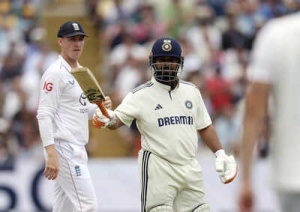Globally, millions face kidney disease, often due to common habits. Overusing painkillers, excessive salt and sugar, and insufficient water intake can harm kidneys. Lack of sleep, smoking, and alcohol consumption also contribute to kidney damage by affecting blood pressure, hydration, and overall kidney function. Awareness and moderation are crucial for kidney health.
Keeping the kidneys in good shape is crucial. These organs play a vital role in filtering waste, balancing electrolytes, and regulating blood pressure. About 850 million people are struggling with some form of kidney disease, worldwide, of which the majority of cases are contributed by chronic kidney disease (CKD). What’s more shocking is that some of our common habits are the key contributors to the rising kidney diseases. Being aware of such everyday behaviours that harm the kidneys is crucial to preventing kidney disease. Here are some of the common habits that are damaging the kidneys.
Overusing painkillersYes, that’s right. This might come as a surprise to you, but frequent use of over-the-counter pain medicines such as NSAIDs (nonsteroidal anti-inflammatory drugs) and analgesics can damage the kidneys. These include ibuprofen, aspirin, and naproxen. These medications can reduce blood flow to the kidneys and, over time, lead to CKD. This is why doctors recommend using painkillers sparingly.
Too much salt Excessive sodium intake is bad for the kidneys. Adding too much salt to your meals can increase blood pressure, which is one of the leading causes of kidney damage. The best way to cut back on excessive salt is to compensate for it by adding herbs and spices. Also, limit the intake of ultra-processed foods, packaged snacks, and fast food, which are loaded with salt and additives that can harm your kidneys and other organs.
Not drinking enough waterKidneys do not work without adequate water. This is because water helps the kidneys to flush toxins from the body. Dehydration would give the kidneys a tough time, as they won't be able to clear the waste, which over time could lead to kidney stones and infections.
Not getting enough sleepRemember, a good night's sleep is one of the best things you can do for your health. Lack of sleep can directly affect your kidneys. This is because the kidney functions based on the sleep-wake cycle. Aim to get at least 7-9 hours of sleep every night.
Too much sugarYes, just like too much salt is bad for your kidneys, sugar also has deleterious effects. Excess sugar intake is linked to obesity. This increases the risk of developing high blood pressure and diabetes, which are some of the leading causes of kidney disease.
SmokingOne of the best things you can do for your kidneys is to quit smoking. Wondering what smoking has to do with kidneys? Studies have shown that people who smoke have protein in their urine, which is a sign of kidney damage.
Daily mistakes that are damaging your kidneys
Yes, alcohol consumption can severely damage the kidneys. Alcohol changes how the kidneys work. Along with filtering waste, the kidneys also maintain the water balance in the body. But when you drink alcohol, your body gets dehydrated, and it can raise blood pressure, which directly harms the kidneys.
Disclaimer: This article is for informational purposes only and should not be taken as medical advice. If you have any concerns, consult a qualified healthcare professional for proper diagnosis and treatment.







 Greg Chappell: Rishabh Pant is Redefining Cricket with His Fearless Batting
Greg Chappell: Rishabh Pant is Redefining Cricket with His Fearless Batting
 Wimbledon 2025: Streaming Guide for India & US Viewers - Dates, Prize Money & New Tech
Wimbledon 2025: Streaming Guide for India & US Viewers - Dates, Prize Money & New Tech
 Vijay Sethupathi Responds to Controversy Surrounding Son Surya's Film Debut 'Phoenix'; Apologizes if Anyone Was Hurt
Vijay Sethupathi Responds to Controversy Surrounding Son Surya's Film Debut 'Phoenix'; Apologizes if Anyone Was Hurt
 Smith Set for Second Test Comeback After Unique Baseball Cage Recovery
Smith Set for Second Test Comeback After Unique Baseball Cage Recovery
 Spotting Prediabetes: Key Warning Signs Your Body May Be Sending
Spotting Prediabetes: Key Warning Signs Your Body May Be Sending
 X Cracks Down: Half a Million Indian Accounts Suspended for Policy Breaches
X Cracks Down: Half a Million Indian Accounts Suspended for Policy Breaches
 Daren Sammy Fined for DRS Criticism After West Indies-Australia Test
Daren Sammy Fined for DRS Criticism After West Indies-Australia Test
 JPG to PDF: A Graphic Designer's Guide to Conversion on Desktop and Mobile
JPG to PDF: A Graphic Designer's Guide to Conversion on Desktop and Mobile
 Tiêu đề:
Oral Cancer: Know the Signs, Risk Factors, and Why Early Detection is Critical
Tiêu đề:
Oral Cancer: Know the Signs, Risk Factors, and Why Early Detection is Critical
 Pant's Witty Reply Stifles Brook's Sledge as India Battles England in Second Test
Pant's Witty Reply Stifles Brook's Sledge as India Battles England in Second Test